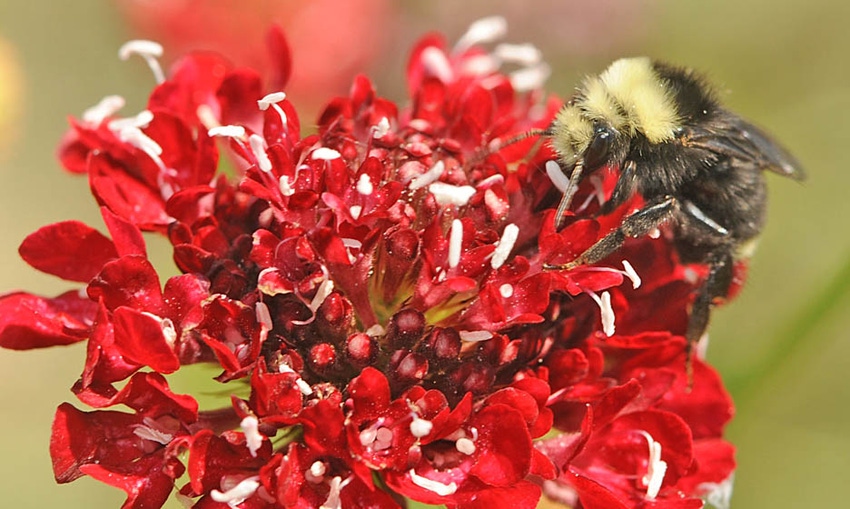April 24, 2013

"Bumble bees are major contributors to pollination of crops and wildflowers throughout the temperate northern hemisphere. Many species have declined, contributing to fears that we might face a 'pollination crisis.'"
So says David Goulson, professor at the University of Stirling, U.K., who will speak on “The Ecology and Conservation of Bumble Bees” on Wednesday, April 24 at a UC Davis Department of Entomology seminar.
His seminar, set from 12:05 to 1 p.m. in Room 1022 of the Life Sciences Addition, corner of Hutchison and Kleiber Hall drives, promises to be well attended. It is scheduled to be videotaped and broadcast at a later date on UCTV.
UC Davis pollination ecologist/assistant professor Neal Williams will host him.
"I will discuss the main causes of their declines, which probably vary between regions," said Goulson, who founded the Bumblebee Conservation Trust in 2006.
(See Rush to ban neonicotinoid pesticides often political)
"In Europe, the primary driver is thought to be habitat loss and other changes associated with intensive farming," Goulson said. "In the Americas, declines of some species are likely to be due to impacts of non-native diseases.
“I will then turn to possible links between poor bee health and pesticides, particularly a class of insecticides known as neonicotinoids. A controversy is currently raging on both sides of the Atlantic; I will give my view on the evidence for environmental impacts of these pesticides.”
Goulson works mainly on the ecology and conservation of bumble bees. He has published more than 200 scientific articles on the ecology and conservation of insects, with a particular focus on bumble bees. He is the author of Bumblebees: Their Behaviour, Ecology and Conservation, published in 2010 by Oxford University Press, and of A Sting in the Tale, a popular science book about bumble bees, published in 2013 by Jonathan Cape.
Goulson received his bachelor’s degree in biology from Oxford University, followed by a doctorate on butterfly ecology at Oxford Brookes University. Subsequently, he lectured in biology for 11 years at the University of Southampton, before moving to Stirling in 2006, and then to Sussex in 2013.
Meanwhile, what's not to like about bumble bees? The dwindling population of many species...
More from Western Farm Press
Dairy farmer blends vodka from cow’s milk
Times are good for California agriculture
Rush to ban neonicotinoid pesticides often political
You May Also Like




